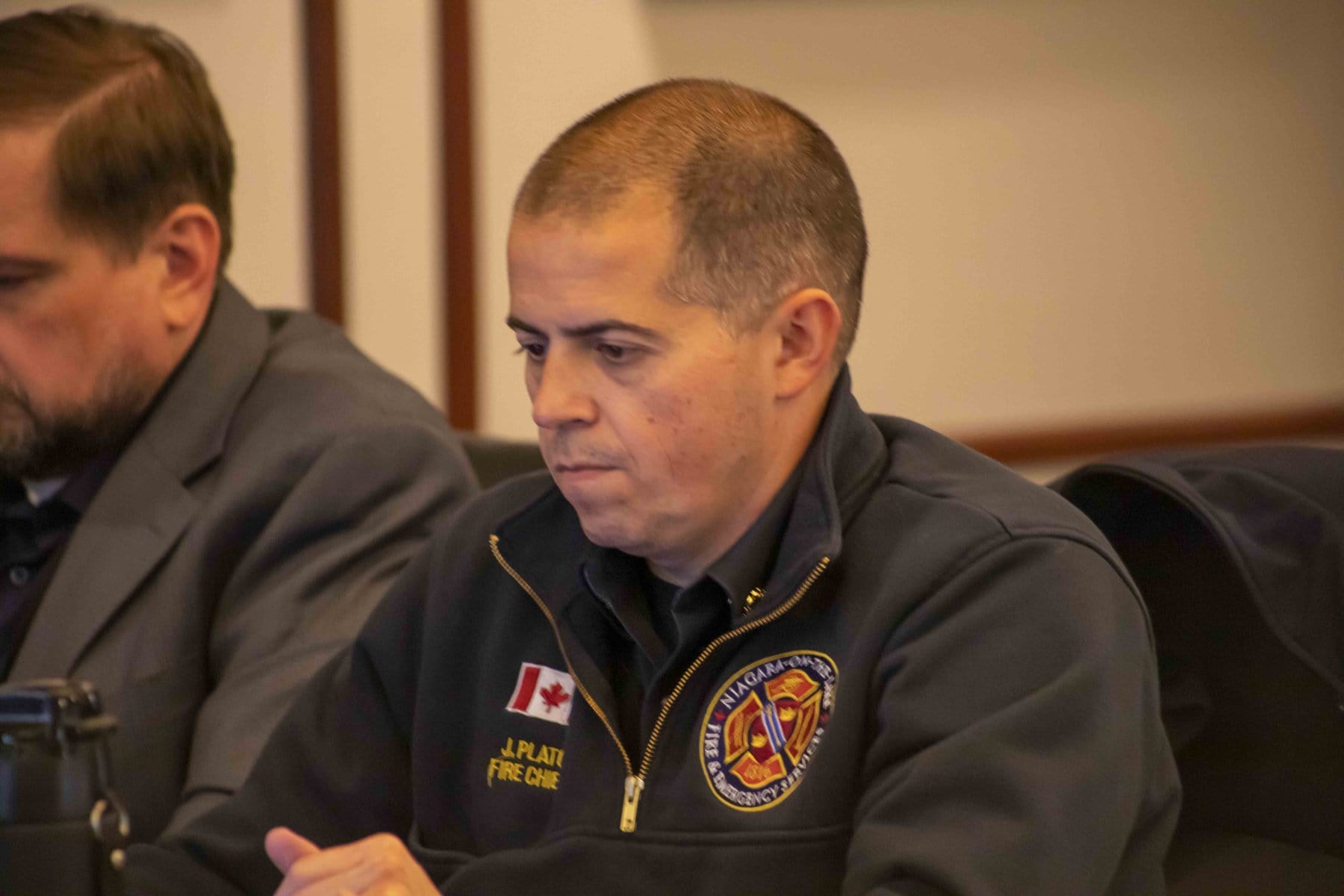Neighbour says home had history of bylaw violations. Other licensed properties don’t appear to meet some bylaw rules
The town has issued a short-term rental licence to the owners of a Virgil property, despite the home having a history of violating the town’s bylaws, says their next-door neighbour.
The house, on Line 2 Road, was added to the town’s list of short-term rentals on April 18 and is described as a cottage rental.
The owner requested a zoning change on the property in 2021 to permit it to be used as a short-term rental.
The town’s committee of adjustment denied the application on Aug. 19, 2021, but the owners appealed the decision to the Ontario Land Tribunal and won about five months later.
Neighbour Tanya Rice says the owners, who live in Mississauga, operated the home as a short-term rental without a licence in 2021.
The town’s short-term rental bylaw states that a licence can be refused if the applicant has “presented a history of contravention with this or other town bylaws.”
Rice, a former Niagara-on-the-Lake bylaw officer, told The Lake Report, “There’s no consistency when issuing a short-term rental licence.”
Fire chief Jay Plato said the town wants to “engage and educate and enforce,” when enforcing compliance with the short-term rental bylaw.
“It’s not about showing up and issuing fines right off the hop,” he said.
Rice agreed the town “should educate people,” but the owners of the home on Line 2 rented their property at least four more times after being refused a licence.
She said she has been documenting potential municipal bylaw violations at the neighbouring property since the owners first started renting it in June 2021.
Rice said she remembers one weekend when guests were urinating on the backyard fences.
In another incident, she said, she woke up to find lewd pictures drawn in chalk in her neighbour’s driveway.
Plato pointed out the town’s bylaw officers do not work past 8 p.m. and cannot respond to late-night noise complaints.
He added, however, Granicus, a digital platform the town uses to manage its short-term rental complaints, does respond after hours to issues like Rice mentioned.
In her experience, Rice said the platform processes complaints slowly. She also worries the town isn’t doing enough to follow up on complaints.
If the town was conducting thorough inspections after complaints, she said, “some of these properties would already have their licence revoked.”
Plato said the town assesses every complaint but the first thing staff does is check whether the property is on the town’s list of short-term rentals.
If not, the town will send a letter informing the property owner of the offence and instructing them to apply for a licence if they wish to continue renting it for short-term use.
Plato said when contacted by the town, most people don’t even realize they’re violating bylaws.
As part of the short-term rental application process, hosts must sign a “good neighbour agreement” which states the licensee recognizes short-term rental operators “have a civic responsibility to address the conduct of their patrons.”
It also notes other municipal bylaws require “certain standards of conduct and maintenance.”
Rice points to the noise bylaw, which limits sound or vibration “likely to disturb the quiet, peace, rest” of residents.
“When you have people renting a short-term rental every weekend, you don’t have peace, harmony and tranquillity,” Rice said.
In 2021, when the owners went to the committee of adjustment with their request, Rice and several neighbours filed a petition with the town protesting the proposal.
The owner was denied the application by the committee of adjustment on Aug. 19, 2021.
By refusing to grant the request the committee acted against the recommendations of staff, which argued in its report “the proposed cottage rental meets all of the provisions for a cottage rental.”
An old real estate listing for the property advertises the property as having four bedrooms, one more than what is permitted for cottage rentals under the town’s bylaw.
This fact was not missed by Rice, who points out that the bylaw describes a cottage rental as having “up to three bedrooms.”
The Ontario Land Tribunal, which settles land disputes, overturned the committee of adjustment’s decision on Jan. 19, 2022.
The tribunal, citing the testimony of town planner Mark Iamarino who processed the owner’s application, said that to be legally classified as bedrooms certain criteria must be met, including rules under the fire code.
“It is unclear if the room located on the lower level would meet such criteria,” Iamarino said in his testimony.
The Line 2 property is not the only one that might be one room too big for a cottage rental licence under NOTL’s bylaw.
A property on Line 7 Road is advertised on Airbnb as a four-bedroom “modern farmhouse” with enough beds for 12 guests when the pull-out sofa and bunk bed in the living room are accounted for.
In addition to advertising more rooms than is permissible for a cottage rental, the owner is promoting a higher capacity than is allowed under the town’s bylaws.
“The maximum number of occupants within a short-term rental shall not exceed a total number based upon two persons per bedroom plus an additional two persons,” the town’s bylaw says.
Even if owners are legally permitted to rent four rooms, the bylaw only allows a maximum of 10 guests.
The owner also advertises three additional short-term rentals on Airbnb and says he has six years of experience.
Plato told The Lake Report he had never encountered a situation where an experienced owner was repeatedly committing the same offences and could not say how staff would handle the situation without having gone through it.
While cottage rentals like that on Line 7 are permitted to be unhosted, bed and breakfasts are not.
“The principal use of the dwelling unit shall be for residential purposes and the bed and breakfast establishment shall be an ancillary use to the main residential use,” the town’s bylaw says.
According to his Airbnb listing, the host of the Line 7 short-term rental lives in Oakville.
When the Lake Report cross-referenced his name with those in the town’s list of short-term rentals it found a home on Concession 4 Road that is licensed as a bed and breakfast.
“In the case of an emergency or short-term vacation, the licensee may appoint a representative to occupy the site on a full-time basis,” the bylaw says.
If the property is unhosted, the appropriate licence for the property is that of a cottage rental, not a bed and breakfast.
One house on Niagara Stone Road is being advertised on Airbnb as a “newly renovated two-bedroom cottage.”
The property is not on the town’s list of short-term rentals.
In cases like this, the town is likely to reach out and educate the owner before slapping them with penalties.
The town has one bylaw officer specifically dedicated to handling short-term rental offences.
Plato said he did not have enough data to determine if the one staff member was sufficient to manage the workload.










